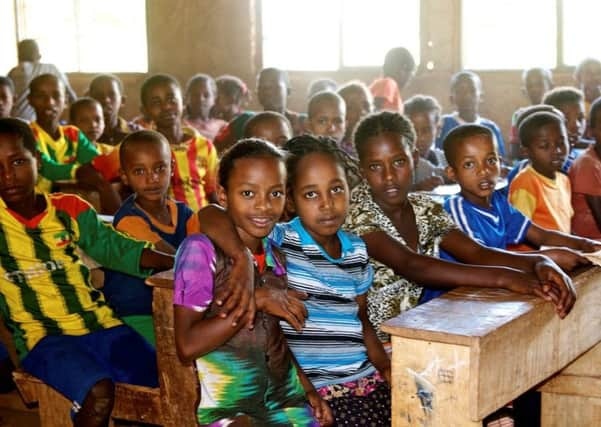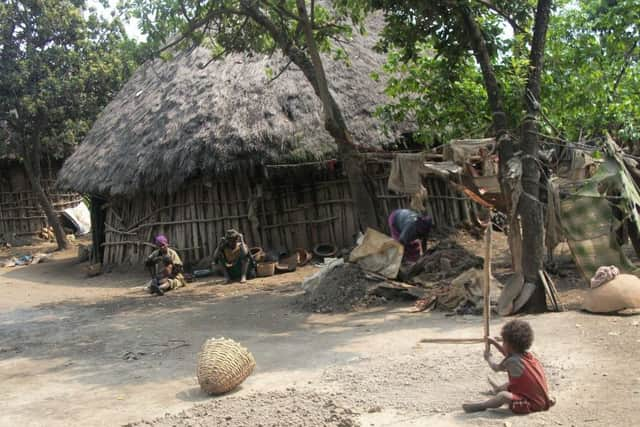Edinburgh charity gives hope of education to Ethiopian girls


Link Community Development International (LCDI) is working in some of the most rural, poverty stricken regions of the country to get more girls going to school - and helping them achieve more while they are there.
High rates of HIV, early marriage and pregnancy along with menstruation and the burden of domestic chores have all be identified as some of the key barriers to girls getting a good education in the Wolaita Zone, around 200 miles south of Addis Ababa.
Advertisement
Hide AdAdvertisement
Hide AdJust one in five teenage girls in Ethiopia are literate (18 per cent) less than half the rate of boys - with just one in three young females making it to secondary school, according to Unesco.


In 2016, boys are still more likely to be sent to school in Ethiopia with their sisters often expected to take on key roles in the home - such as looking after sick parents or caring for siblings.
LCDI is working to shift the obstacles to a good education for girls and the better prospects that naturally follow.
The charity also works closely with local education departments to improve training of teachers and create new educational resources in the local language of Wolaitigna.
Already, there have been some impressive results with learning scores rising from an average of 25 per cent to around 75 per cent in some schools.


And crucially, Dr Samantha Ross, international development lead at LCDI said small changes in attitude can be felt in the rural communities it serves.
Dr Ross said: “We are seeing an attitude change in communities. Behaviour change is quite difficult to measure but people are now saying they want girls to have an equal opportunity to boys. They are speaking about it. We are hearing how girls are given less chores to do or how more money is being spent on paraffin for the lamp so they can study at night. “
The charity worked with girls to make short film to express the main barriers they felt stood between them and a good education,
Advertisement
Hide AdAdvertisement
Hide AdTo screen the movies, a generator and screen was taken up into the a very rural mountainous regions with the girls, parents, brothers and all the male figures in the family all invited to attend
“It was very, very moving,” Dr Ross said. “At the end people were physically moved and a lot of the men said they didn’t know what had been happening to their girls and the impact on their education. One father sticks in my mind. He said he will make sure from now on that there is enough paraffin n the lamp so his daughter can study at night.”
Dr Ross and her team are delivering their work for just £47 per girl over the three-year programme, which started in 2013.
The project avoids the use of expensive technology to insure the work has the best chance of continuing after the programme ends.
The methods used to pull girls more strongly into the school system have been simple but effective.
Female-only tutorials have been used to boost the confidence of girls with the charity also supporting teachers in leading more “gender sensitive lessons”. Dr Ross said.
She added: “In traditional classroom, teaching can still be very male dominated. Boys may still be seen to be more intelligent and a teacher may choose boys over girls to answer questions. We are training teachers to be more gender sensitive
“When there are only girls in the classroom, they feel more confident and more able to try and make mistakes.”
Advertisement
Hide AdAdvertisement
Hide AdFemale role models have also been introduced to the girls, whether it be a local businesswoman or a farmer who raised a family but chose to limit the number of children and space out the years between births.
Counselling sessions on health and emotional wellbeing have also been held with the charity providing sanitary wear and pants to girls so they don’t stay off school during their period - a common issue in the developing world. Rest rooms and better toilet facilities have also been set up in some schools.
Dr Ross said: “When women are educated, their children are healthier, fewer children are dying and there is also evidence that agricultural production goes up.”